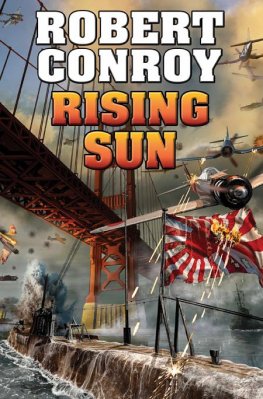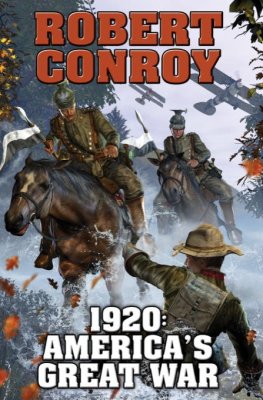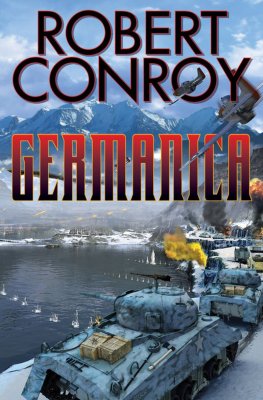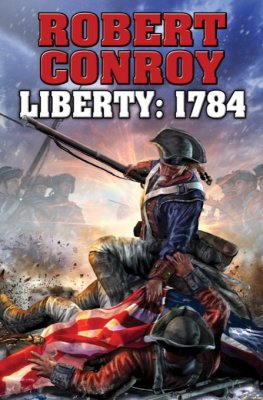Robert Conroy - Red Inferno: 1945
Here you can read online Robert Conroy - Red Inferno: 1945 full text of the book (entire story) in english for free. Download pdf and epub, get meaning, cover and reviews about this ebook. year: 2010, publisher: Ballantine Books, genre: History. Description of the work, (preface) as well as reviews are available. Best literature library LitArk.com created for fans of good reading and offers a wide selection of genres:
Romance novel
Science fiction
Adventure
Detective
Science
History
Home and family
Prose
Art
Politics
Computer
Non-fiction
Religion
Business
Children
Humor
Choose a favorite category and find really read worthwhile books. Enjoy immersion in the world of imagination, feel the emotions of the characters or learn something new for yourself, make an fascinating discovery.

- Book:Red Inferno: 1945
- Author:
- Publisher:Ballantine Books
- Genre:
- Year:2010
- Rating:5 / 5
- Favourites:Add to favourites
- Your mark:
- 100
- 1
- 2
- 3
- 4
- 5
Red Inferno: 1945: summary, description and annotation
We offer to read an annotation, description, summary or preface (depends on what the author of the book "Red Inferno: 1945" wrote himself). If you haven't found the necessary information about the book — write in the comments, we will try to find it.
Red Inferno: 1945 — read online for free the complete book (whole text) full work
Below is the text of the book, divided by pages. System saving the place of the last page read, allows you to conveniently read the book "Red Inferno: 1945" online for free, without having to search again every time where you left off. Put a bookmark, and you can go to the page where you finished reading at any time.
Font size:
Interval:
Bookmark:
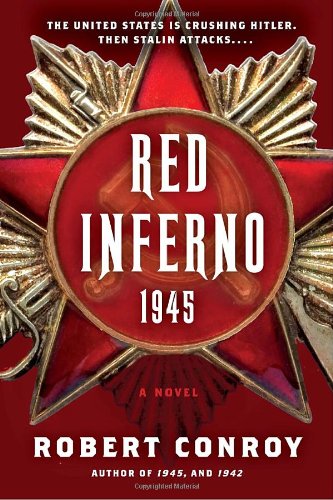
Also by ROBERT CONROY
1901
1862
1945
1942

I n April 1945, advance elements of the U.S. Army reached the Elbe River, a mere sixty miles from Berlin, and some units actually crossed it. As far as they could tell, there was nothing of substance between them and the capital of the Third Reich. The Germans had largely pulled back and were concentrating on defending Berlin from the Russians, who were massing on the Oder River to the citys east.
In London, Churchill wished to prevent the Soviet Union from becoming dominant in Europe and urged the Allies to go on to Berlin. Montgomery concurred. In the American military, Patton and his Third Army strained at the leash, while Simpson made plans for his Ninth Army to attack Berlin by way of Potsdam. The plans were bucked up to Bradley, who sent them to Eisenhower, while the Americans on the Elbe prepared to move forward.
In the Kremlin, Stalin was very concerned. In March of 1945, he had decided that the Allies were trying to beat the Red Army to Berlin. Weeks later, he scolded Marshals Zhukov and Koniev: Well now, who is going to take Berlin? Will we or the Allies?
W E WILL NEVER know what might have been Stalins reaction had Eisenhower and Truman agreed to Simpsons plan to enlarge the Elbe River bridgehead to include Potsdam. Henry Kissinger described Stalin as a monster who had slaughtered millions by this time, and one who was a supreme and implacable realist. Yet he was also frightened of the specter of a Soviet Union surrounded by non-Communist countries. He made no distinction between the fascists and the capitalists. They were all his enemies. Further, Stalin knew about the atomic bomb and feared that the Allies would use it to contain and defeat the Communist revolution.
For these reasons, Stalin was reneging on the agreements made at Yalta, which included freedom for those nations liberated by the Soviets and who werent part of the Axis.
Stalin may have had one nervous breakdown due to the 1940 Nazi invasion of the Soviet Union, and may have been on the verge of a second at the time the Allies were contemplating a move on to Berlin. So what would an unstable Stalin have done if confronted by an American advance on Berlin?
All of the preceding is history. Eisenhower did not give Simpson permission to move toward Potsdam. But what if the American armies actually had attempted to enter Berlin? Instead of the fretful peace that presaged the Cold War, there is the strong probability that Stalin would have unleashed something like an Operation Red Inferno against the Allies in the spring of 1945.
T HE UNITS INVOLVED at Potsdam are all fictitious, as are all the characters assigned to them. To the best of my knowledge, there were no such units active in World War II.
T he hastily gathered flotilla of small motor launches plowed through the calm water of the Elbe River as their outboards churned toward the rapidly closing enemy-held ground ahead. The helmeted men inside the collection of small boats hunched down, as if willing themselves to be invisible and, thus, out of harms way.
This was when soldiers were the most vulnerable, and the tightly packed men in each of the dozen assorted craft knew that a hit anywhere would impact on something soft, meaty, and human. In a perverse and illogical way, the American soldiers hoped they would be opposed only by rifles and machine guns. Anything, they thought, but the damn German 88 mm antitank guns that could instantly turn their frail craft into flaming coffins.
But where were the Germans? The April morning was clear and the GIs knew the little boats must stand out vividly to enemy eyes that must be watching them. Yet the only sound they heard was the roar of the straining motors and the splash of the waves only inches below the freeboard. The launches were overcrowded, with almost twenty stuffed into some of them. The men themselves were strangely silent. This was water. Their environment was land. Afloat, they felt useless. On land you could dig a hole and hide, or even run, but what the hell did you do on water?
Soldiers would look up and glance forward, trying to pick out the places where terror would emerge but saw nothing frightening. The German countryside was green and friendly, like something from a postcard. Where could there be terror? At this crossing point, the Elbe was less than a quarter mile of blue-green water. Yet it might as well have been the English Channel for the fear it caused.
Lieutenant, get your head down, yelled Sergeant Jack Logan. Please, he amended, belatedly conscious of the difference in their ranks and that he shouldnt show up any officer, even a brand-new replacement like Second Lieutenant David Singer.
I wanna see, Sarge. I wanna be the first Jewish officer east of the Elbe and maybe the first in Berlin.
The young sergeant chuckled and a few of the other men nervously joined in. Sergeant Logan was big for an infantryman, nearly six feet tall, stocky and muscular, and with a shock of red hair that was kept out of view by his helmet. He had open, even features, and some, particularly his mom, described him as having a friendly face, whatever the hell that meant. He certainly wasnt friendly with a rifle in his hands. Logan contrasted sharply with the shorter young officers pale skin and thin blond hair. Lieutenant Singer would be bald before he was forty.
Logan liked young Lieutenant David Singer. He had arrived only a couple of days earlier and was replacing another young lieutenant whod gotten badly wounded. It was hard to realize that he, the old man of the platoon, was only a year older than the lieutenants twenty-three years. War had such a wonderful way of aging its participants.
Can this thing go faster? came a lament from the rear of the launch. Logan thought the voice was Crawfords, but he couldnt tell.
Lieutenant Singer responded. If you want, you can get out and push.
This was greeted with a few more nervous giggles and an offer to paddle with helmets. The jokes were stupid, but they broke the tension. Anything to hide the fact that they could be dead in an instant.
The water shallowed and the boat slowed, finally crunching up on the mud embankments. The men hurled themselves from their unwelcome craft and ran up the low embankment, fanning out like the veterans they were.
There was no need for either Singer or Logan to give any orders, and the two men prudently concentrated on staying out of everyones way. To his left and right the other craft disgorged their human cargoes as well. In a matter of moments, almost half of D Company was safely across and forming a defensive perimeter.
The commandeered boats began their return to the west bank of the Elbe and would return again and again with more and more soldiers. On the far shore, engineers were assembling a pontoon bridge.
Singer fidgeted with his rifle. Sergeant Logan.
What, sir?
Where are the Germans?
Logan took off his helmet and wiped his head quickly before replacing it. He had this unreasonable fear that his red hair could be seen from quite a distance and, therefore, made a great aiming point. When he didnt have a helmet on, he made certain he wore a cap. Regulations said a soldier had to wear headgear when outdoors, although a lot of men ignored the rule. Not Logan. He always wore something on his head.
Font size:
Interval:
Bookmark:
Similar books «Red Inferno: 1945»
Look at similar books to Red Inferno: 1945. We have selected literature similar in name and meaning in the hope of providing readers with more options to find new, interesting, not yet read works.
Discussion, reviews of the book Red Inferno: 1945 and just readers' own opinions. Leave your comments, write what you think about the work, its meaning or the main characters. Specify what exactly you liked and what you didn't like, and why you think so.

